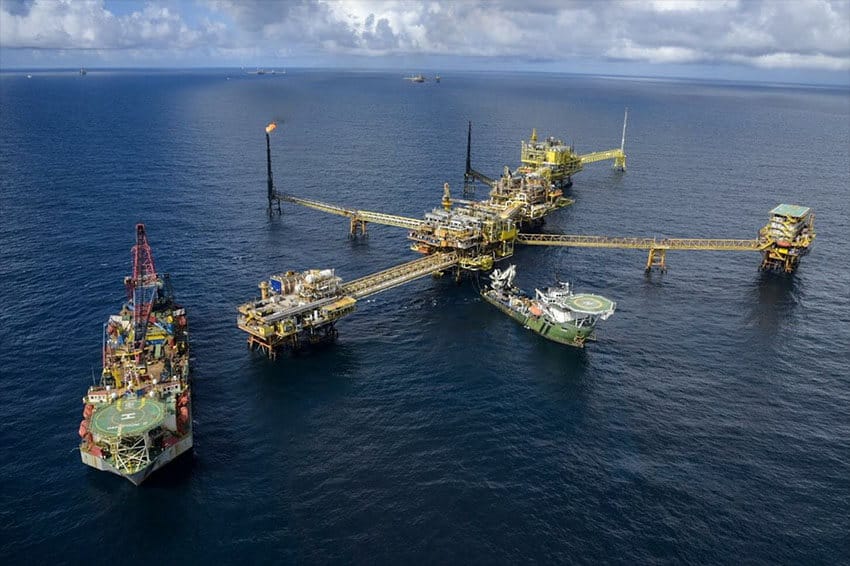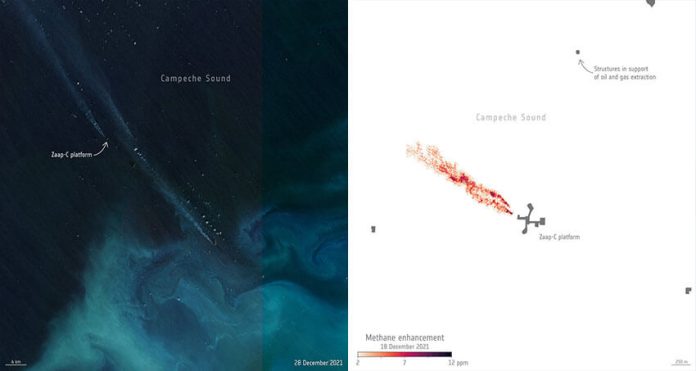Pemex has rejected a study that concluded that it released some 40,000 tonnes of methane into the atmosphere from a Gulf of Mexico oil and gas platform last December.
A team of European scientists published a paper earlier this year that details the “ultra-emission event.”
Announcing the results of the study in June, the European Space Agency (ESA) noted that the scientists used satellite data to detect methane plumes from Pemex’s Zaap-C platform.
“This is the first time that individual methane plumes from offshore platforms are mapped from space,” the ESA said. “… The team found that the platform released high volumes of methane during a 17-day ultra-emission event which amounted to approximately 40,000 tonnes of methane released into the atmosphere in December 2021.”
Methane, the main constituent of natural gas, is much more harmful to the environment than carbon dioxide and is considered a major contributor to global warming.
In a statement published Wednesday, Pemex said that a government-commissioned study carried out by the company Solal-Genermasa confirmed that “there were no large emissions of methane” at the Zaap-C platform.
The state oil company said that last December’s emissions had a 22% concentration of methane, while the remainder was made up of nitrogen and other gases “that don’t affect the environment.”
“The images captured by the satellites referred to in the Environmental Science & Technology Letters article were considered, incorrectly and unprofessionally, to be entirely methane gas emissions,” Pemex said.

The state-owned firm said that the authors failed to “take the care” of asking Pemex for “feedback with regard to the composition of the gas” and the quantity of methane emitted into the atmosphere.
“The company Solal-Genermasa determined … that the emission of methane was 2,224 tonnes, which corresponds to 5% of what was published in the aforementioned article,” Pemex said.
“Finally, it’s important to point out that these emissions were an extraordinary event due to the meteorological conditions,” it added, explaining that there was strong rain and gusts of wind that caused a burner to shut down during the period in question.
Concerns about Pemex’s methane emissions were also raised last year. Daniel Zavala, a senior scientist at the United States-based non-profit Environmental Defense Fund, said in July 2021 that methane was leaking from Mexican gas and oil operations at “alarming and worrying” levels.
A study to which he contributed found that Mexico’s methane leak rate was more than double that of the United States, the world’s largest oil producer.
Mexico News Daily
